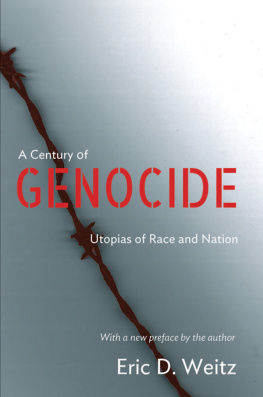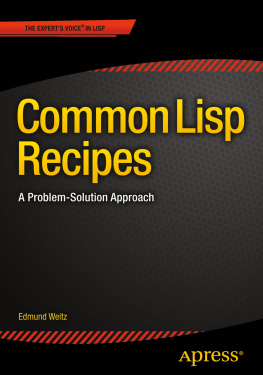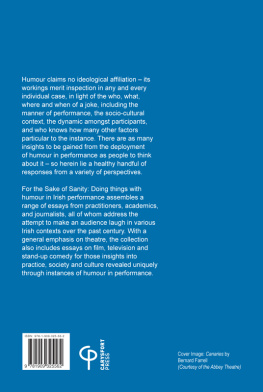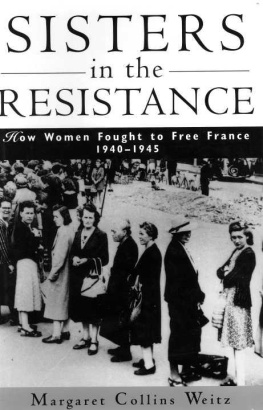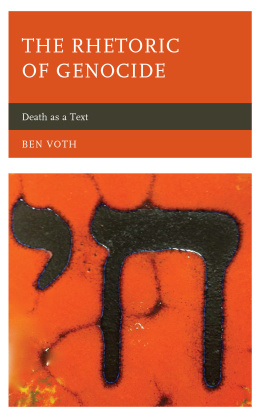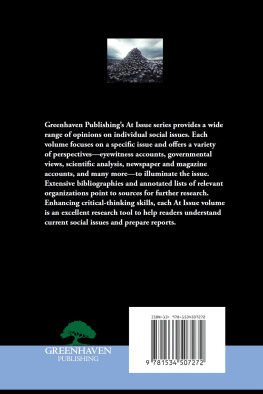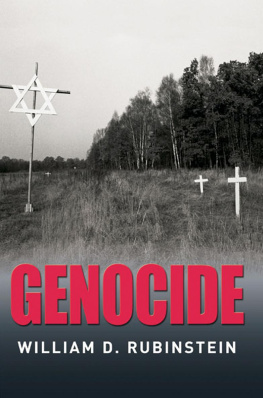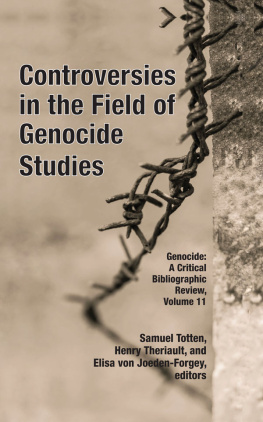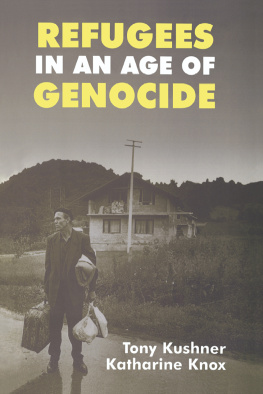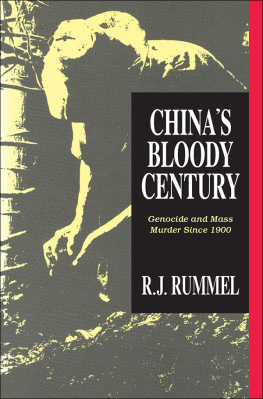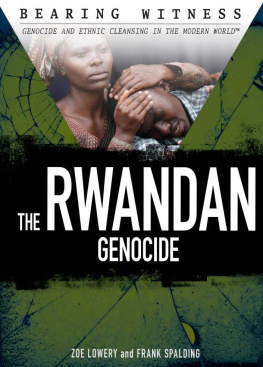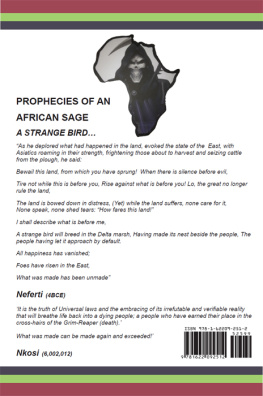Weitz - A Century of Genocide
Here you can read online Weitz - A Century of Genocide full text of the book (entire story) in english for free. Download pdf and epub, get meaning, cover and reviews about this ebook. year: 2015, publisher: Princeton University Press, genre: Politics. Description of the work, (preface) as well as reviews are available. Best literature library LitArk.com created for fans of good reading and offers a wide selection of genres:
Romance novel
Science fiction
Adventure
Detective
Science
History
Home and family
Prose
Art
Politics
Computer
Non-fiction
Religion
Business
Children
Humor
Choose a favorite category and find really read worthwhile books. Enjoy immersion in the world of imagination, feel the emotions of the characters or learn something new for yourself, make an fascinating discovery.
A Century of Genocide: summary, description and annotation
We offer to read an annotation, description, summary or preface (depends on what the author of the book "A Century of Genocide" wrote himself). If you haven't found the necessary information about the book — write in the comments, we will try to find it.
Weitz: author's other books
Who wrote A Century of Genocide? Find out the surname, the name of the author of the book and a list of all author's works by series.
A Century of Genocide — read online for free the complete book (whole text) full work
Below is the text of the book, divided by pages. System saving the place of the last page read, allows you to conveniently read the book "A Century of Genocide" online for free, without having to search again every time where you left off. Put a bookmark, and you can go to the page where you finished reading at any time.
Font size:
Interval:
Bookmark:

a century of genocide
a century of genocide
UTOPIAS OF RACE AND NATION
Eric D. Weitz
with a new preface by the author
PRINCETON UNIVERSITY PRESS
Princeton and Oxford
Copyright 2003 by Princeton University Press
Published by Princeton University Press, 41 William Street, Princeton, New Jersey 08540
In the United Kingdom: Princeton University Press, 6 Oxford Street, Woodstock, Oxfordshire OX20 1TW
All Rights Reserved
Eighth paperback printing, and first paperback printing with a new preface by the author, 2015
Paperback ISBN: 978-0-691-16587-5
Library of Congress Control Number: 2015930402
British Library Cataloging-in-Publication Data is available
This book has been composed in Sabon and Universe Condensed 57
Printed on acid-free paper.
press.princeton.edu
Printed in the United States of America
1 3 5 7 9 10 8 6 4 2
abbreviations
AfRGB | Archiv fr Rassen- und Gesellschafts-Biologie |
Cheka | Extraordinary Commission to Combat Counterrevolution and Sabotage |
CPK | Communist Party of Kampuchea |
DK | Democratic Kampuchea |
EC | European Community |
FVC | Fortunoff Video Collection (Sterling Memorial Library, Yale University) |
ICTY | International Criminal Tribunal for the Former Yugoslavia |
IMF | International Monetary Fund |
JNA | Yugoslav Peoples Army |
KWI | Kaiser Wilhelm Institute |
LCY | League of Communists of Yugoslavia |
MK | Mein Kampf |
NATO | North Atlantic Treaty Organization |
NDH | Independent State of Croatia |
NEP | New Economic Policy |
NKVD | Peoples Commissariat of Internal Affairs (Soviet secret police) |
NSDAP | National Socialist German Workers Party (or Nazi Party) |
RHA | Racial-Hygienic and Heredity Research Center |
SPS | Socialist Party of Serbia |
UN | United Nations |
UNPROFOR | United Nations Protection Force |
USSR | Union of Soviet Socialist Republics |
Preface to the New Paperback Edition
When I first began to write A Century of Genocide shortly before the turn into the new millennium, the effort to understand genocides in a comparative framework was still highly controversial. The Historikerstreit (historians quarrel) in West Germany was only a decade behind us, and its consequences still reverberated. In that heated public and academic debate, Jrgen Habermas, Hans-Ulrich Wehler, and many other leading lights of the German intellectual world took to task their colleague Ernst Nolte for relativizing and trivializing the Holocaust. Nolte had compared the Holocaust with the Stalinist terrors and other inhumane acts committed by communist regimes. For Nolte, the European twentieth century was defined by the communist threat. Germany rightly feared the aggressive designs of the Soviet Union. Everything the Nazis did was in response; every terror act of the Third Reich had been presaged by Stalin. The Nazis only adopted the techniques of repression forged in the Soviet Union. Nolte argued that communist regimes were even more bloodthirsty than the Third Reich, implying that the Nazis were not all that bad or at least not all that distinctive when viewed through a comparative lens.
Habermas and others put to rest these specious arguments of Noltes, which at best were based on a silly chronological determinismthe Soviets did it first, hence the Nazis only responded in kindand at worst were a deliberate effort to call into question the enormity of the Nazi effort to annihilate the Jews and the Holocausts stature as a symbol of absolute evil. The broader intellectual impact, however, was deleterious. Noltes reprehensible diminution of the meaning of the Holocaust made it very difficult to undertake comparative analyses, since every venture into this terrain was immediately castigated as a similar relativization of the Holocaust.
Ten years on, in 1997, just when I started work on A Century of Genocide, another public and academic storm had a similar effect. Published first in France and edited by the ex-communist and ex-Maoist Stphane Courtois, The Black Book of Communism provided intricate Courtois, like Nolte, practiced history by body count. Communism had many more victims to account for, hence it was necessarily worse than Nazism. Case closed.
The impact of The Black Book, at least at first, was not to stimulate serious, systematic comparative analysis of dictatorial systems. The triumphalist tone assumed by Courtois and many of his collaboratorswho often sounded like secular sinners seeking penance for their communist pastclosed off the possibilities for comparison. Notably, Courtois and Nolte largely ignored the nuanced and sophisticated historical and social science studies of the Third Reich and the Stalinist Soviet Union. Increasingly, these works analyzed the internal workings of the state and state-society interactions as part of the effort to explain the repressions and terror and, in the case of the Third Reich, the genocide committed by the regimes. Instead, Nolte and Courtois engaged in polemics that masked as scholarship.
Not rarely, when I first began to present lectures based on the research I was conducting for A Century of Genocide and argued that comparative analysis was the best way to understand the prevalence of genocide in the twentieth century, I was accused of either relativizing the Holocaust la Nolte or of parroting The Black Book with its blanket condemnation of communism. Fortunately, I was not alone in the comparative venture. In the mid-1990s a group of North American scholars had founded what is now known as the International Association of Genocide Scholars (IAGS). Their touchstone was the pioneering work of the South African-born sociologist Leo Kuper and his book, Genocide: Its Political Uses in the Twentieth Century.
In these first works in the field now known as genocide studies, the major focus was on the singular nature of genocidal events, in particular their origins and implementation and the political and moral question of how they might be prevented in the future.
Then, around 2000, the research took off, helped along by a panoply of newly-founded journals, conferences, and associations, notably, in addition to the IAGS, the International Network of Genocide Scholars, the Workshop on Armenian-Turkish Studies, and the Journal of Genocide Studies and other journals as far afield as Germany and Japan. We have learned an enormous amount about particular cases. The pacesetter for the research has been work on the Armenian Genocide and the genocide of the Herero and Nama of German Southwest Africa (today Namibia) between 1904 and 1908, the first two cases of the twentieth century, along with the Rwandan Genocide. It takes courage to work on the topic, but there is now a critical mass of Turkish scholars who do so. The evidence for the genocide has become so overwhelming that the Turkish states protestations look increasingly like the hollowed-out communist ideology of the Brezhnev era in the Soviet Union.
Next pageFont size:
Interval:
Bookmark:
Similar books «A Century of Genocide»
Look at similar books to A Century of Genocide. We have selected literature similar in name and meaning in the hope of providing readers with more options to find new, interesting, not yet read works.
Discussion, reviews of the book A Century of Genocide and just readers' own opinions. Leave your comments, write what you think about the work, its meaning or the main characters. Specify what exactly you liked and what you didn't like, and why you think so.

